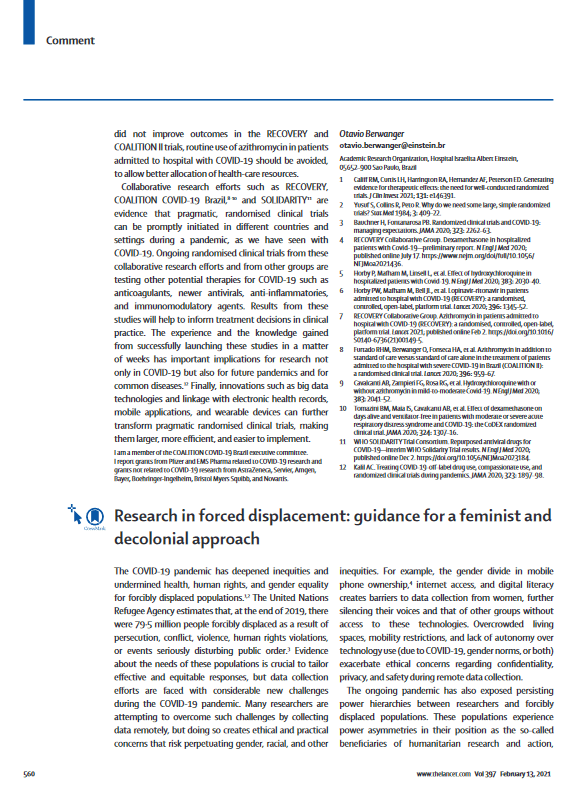The COVID-19 pandemic has deepened inequities and undermined health, human rights, and gender equality for forcibly displaced populations.1, 2 The United Nations Refugee Agency estimates that, at the end of 2019, there were 79·5 million people forcibly displaced as a result of persecution, conflict, violence, human rights violations, or events seriously disturbing public order.3 Evidence about the needs of these populations is crucial to tailor effective and equitable responses, but data collection efforts are faced with considerable new challenges during the COVID-19 pandemic. Many researchers are attempting to overcome such challenges by collecting data remotely, but doing so creates ethical and practical concerns that risk perpetuating gender, racial, and other inequities. For example, the gender divide in mobile phone ownership,4 internet access, and digital literacy creates barriers to data collection from women, further silencing their voices and that of other groups without access to these technologies. Overcrowded living spaces, mobility restrictions, and lack of autonomy over technology use (due to COVID-19, gender norms, or both) exacerbate ethical concerns regarding confidentiality, privacy, and safety during remote data collection…
Singh, N. S., Lokot, M., Undie, C. C., Onyango, M. A., Morgan, R., Harmer, A., … & Heidari, S. (2021). Research in forced displacement: guidance for a feminist and decolonial approach. The Lancet, 397(10274), 560-562.






